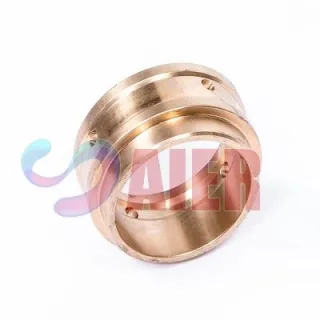Jul . 26, 2024 08:00 Back to list
Top FGD Pump Manufacturers and Their Key Offerings in the Market Today.
FGD Pump Manufacturers A Vital Link in Environmental Protection
Flue Gas Desulfurization (FGD) is an essential process used in power plants and other industrial facilities to remove sulfur dioxide (SO2) from exhaust gases. This process significantly reduces air pollution and helps companies comply with environmental regulations. A crucial component of FGD systems is the pumps used in various stages of the process. Consequently, FGD pump manufacturers play a vital role in enhancing the efficiency and reliability of these systems.
The Importance of FGD Pumps
In FGD applications, pumps are responsible for moving slurries, reagents, and process water needed for the scrubber system. The pumps must handle corrosive materials, solid particles, and varying flow rates—challenging conditions demanding high-quality, durable equipment. Consequently, the selection of pumps is critical. Manufacturers must provide pumps that ensure minimal downtime, reduced maintenance costs, and optimal performance, thereby supporting the viability of the FGD process.
Types of FGD Pumps
FGD systems utilize several different types of pumps, each designed for specific functions
1. Slurry Pumps These are designed to transport a mixture of liquid and solid particles, which is a common requirement in FGD systems where limestone or other reagents are used to absorb sulfur dioxide.
2. Chemical Feed Pumps These pumps are used to inject reagents into the scrubbing process. Precision is critical here, as an accurate dosage of chemicals directly affects the efficiency of SO2 removal.
3. Recirculation Pumps Maintaining an optimal flow within the FGD system is critical for process efficiency. Recirculation pumps ensure stable flow rates and prevent sediment build-up.
4. High-Pressure Pumps Used in certain stages of the FGD process, these pumps must withstand significant pressure while providing reliable performance.
Key Attributes of Leading FGD Pump Manufacturers
fgd pump manufacturers

Manufacturers in the FGD pump sector must possess several crucial attributes to ensure the delivery of high-performance pumps
1. Material Selection Since pumps in FGD applications often come into contact with corrosive substances, manufacturers must utilize corrosion-resistant materials such as stainless steel or specialized alloys.
2. Engineering Expertise The design of FGD pumps requires sophisticated engineering capabilities. Leading manufacturers employ experienced engineers who can create pumps tailored to the specific demands of the FGD process.
3. Research and Development Continuous innovation is essential for improving pump efficiency and durability. Manufacturers investing in R&D can enhance their product offerings and adapt to changing regulations and technological advancements.
4. Comprehensive Support Services A good manufacturer will provide extensive support services, including installation, maintenance, and spare parts supply, ensuring that their pumps operate at peak efficiency throughout their lifespan.
The Future of FGD Pump Manufacturing
As global awareness of environmental issues increases, the demand for efficient FGD systems will likely rise. This demand places FGD pump manufacturers in a strategic position to influence air quality standards. In the coming years, advancements in materials technology, automation, and smart monitoring systems may lead to pumps that are not only more efficient but also easier to maintain.
Moreover, manufacturers must remain agile and responsive to evolving regulations concerning emissions. By developing innovative solutions, they can enhance the sustainability of energy production while contributing to a cleaner environment.
Conclusion
FGD pump manufacturers play a pivotal role in environmental protection, providing essential equipment that supports the efficacy of FGD systems. Their commitment to quality, innovation, and customer service ensures that industries can effectively reduce harmful emissions. As the world continues to prioritize sustainable practices, the significance of reliable FGD pumps and their manufacturers will only grow.
-
Top Submersible Pump Companies High Quality Manufacturers & Suppliers in China
NewsJul.08,2025
-
High Quality Seal for 5 Inch Dredge Pump Reliable China Manufacturer & Supplier
NewsJul.08,2025
-
High-Efficiency Slurry Sand Pump from Leading China Manufacturer – Durable & Reliable Solutions
NewsJul.07,2025
-
High-Quality Slurry Pump Made in China Durable Steel Mill Slurry Pump & Parts
NewsJul.07,2025
-
High Quality Excavator Dredge Pump Manufacturer & Suppliers from China – Reliable, Durable, Efficient Solutions
NewsJul.07,2025
-
Wholesale Slurry Pump Closed Impeller Supplier High Efficiency China Slurry Pump Closed Impeller
NewsJul.06,2025
